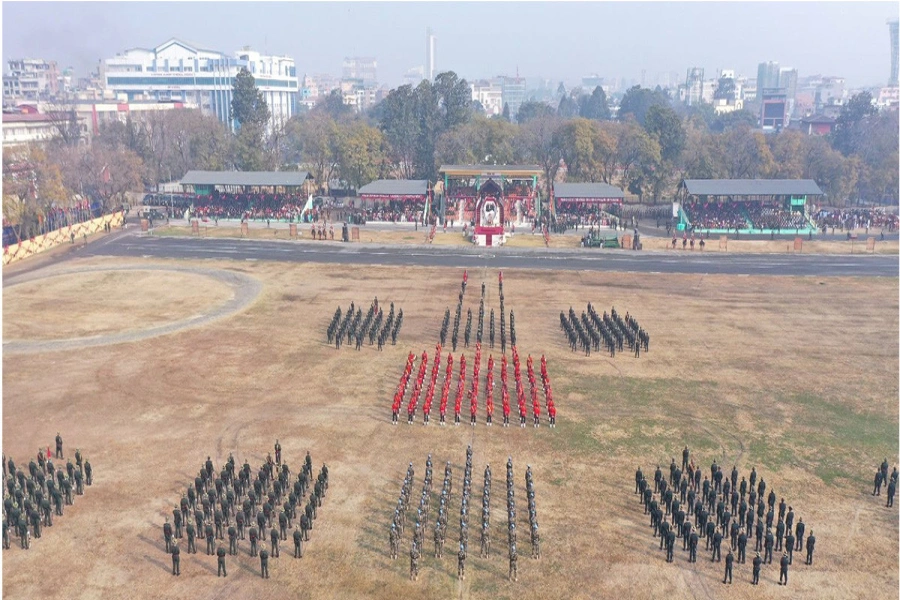In the process of amending anti-corruption laws, now being discussed in the parliament, a controversy is being sparked over the issue of statute of limitations (SL), that is, the time limit for investigating corruption crimes committed by the public officials.
According to reports, MPs are divided into two main camps. Some MPs are advocating for a more radical approach, either by eliminating the statute of limitations entirely or by extending the time period significantly.
The new party, Rastriya Swatantra Party (RSP), is at the forefront here. Their manifesto speaks “bringing to justice, crimes committed at any point of history”. Rajabadis and Maobadis, on the other hand, seek to have corruption investigation post multi-party ear (1990). The anti-republic and anti-federalists may seek to have 2006/7 as the threshold.
The media also reported that the proposed amendment seeks to have “five year SL”. The majority of the MPs are in favor of having this five-year SL. Those MPs favoring some form of SL have viewed it on practical grounds of possible abuse of authority by the investigating body making public officials subservient to investigations and difficult to collect evidence over a longer period of time. However, their view is not articulated as much as that of “the revolutionary MPs” seeking to do away with SL provision.
In the current anti-corruption law (2002), there is no provision for SL. However, earlier law speaks of one-year SL. Because of this, along with Nepali Congress leader, Mr. Govinda Raj Joshi who was recently convicted, many officials charged by the CIAA, were acquitted on the ground of SL by the Special Court in 2006. Mr. Joshi was recently convicted because of the CIAA filing an appeal.
Leaders agree to remove proposed five-year statute of limitatio...

What is international practice?
Having read the SL controversy and listened to heated debates by the MPs, I sought advice from “anti-corruption gurus” at Harvard. They sent me a six-page summary on the UNCAC application of SL related to Article 29. Since we have ratified UNCAC in 2011, I suppose, it is sensible to talk about SL from the perspective of UNCAC provisions. Here is the summary for our lawmakers, as well as, for law breakers:
First, a look at Article 29 of UNCAC. It says,
“Each State Party shall, where appropriate, establish under its domestic law a long statute of limitations period in which to commence proceedings for any offense established in accordance with this Convention and establish a longer statute of limitations period or provide for the suspension of the statute of limitations where the alleged offender has evaded the administration of justice.”
It is pretty difficult to come out of this foggy legal writing. In a nutshell, what UNCAC says is: (a) There should be an SL limit and it should be “longer and even longer” or “suspended” (no SL) for severe crimes. (b) UNCAC provides flexibility on determining SL for the countries.
Second, more than two-thirds of UNCAC ratifying countries have established a SL and it ranges from a minimum of 1 year (in one case) to a maximum of 25 years (in two others), depending usually on the classification of the offense and the gravity of their punishment.
Third, often court ruling and “public interest” is taken into account while determining SL where no such provisions exist.
Striking a balance
Fourth, there are a wide variety of cases or experiences related to SL. Rather than discretely categorizing or compartmentalizing the debate on having or not having SL or having specific SL period, it can be applied depending on the gravity of the cases, involvement of the public officials, commencement and ending of the crime, crime involving multiple actors and cases and so on and so forth. Some grave cases of money laundering do not include SL.
The document speaks of striking “a fair balance the interests of swift justice, closure and fairness to victims and defendants on the one hand and the recognition that corruption offenses are often complex, take a long time to be discovered and established, and may also involve multiple jurisdictions on the other.”
Punitive focus
Going by the debate on anti-corruption law reform, our policy makers are guided primarily by a punitive approach. What I see is a need for a preventive approach. After SL, the next level of debate is obviously focused on making provisions for severe punishments. Each MP from a specific political party is vying with another MP from rival political parties to outwit them by recommending as much severe punishment as possible. We have death sentences in China and Vietnam but corruption problems have not reduced there. What I see is that our lawmakers need an immersion course on the basics of corruption.





































